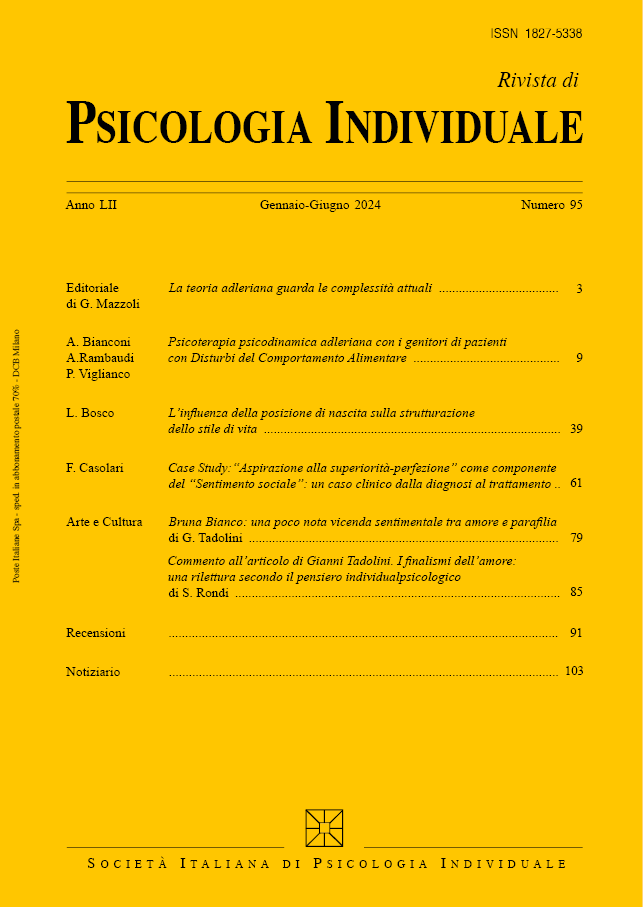ADLER, AN UNFINISHED REVOLUTION, ORIENTED IN ITALY IN A PSYCHODYNA MIC SENSE BY FRANCESCO PARENTI (SOME REFERENCES TO OBSESSIVE-COMPULSIVE DI SORDERS). CONTRIBUTION TO THE HISTORY OF INDIVIDUALPSYCHOLOGY AND ITALIAN PSYCHOTHERAPY
Keywords:
adler, parenti, psicologia individuale, storia della psicoterapia, disturbo ossessivo-compulsivo, doc, traduzione, forma, sostanza, storia del movimento adleriano, psicologia individuale comparata, filologia, rivoluzioneAbstract
Adler separated from Freud in 1911 because of revolutionary ideas that gradually, as Ellenberger says, have been acquired by most of the psychotherapeutic models. The Adlerian revolution, however, was born with two underlying problems that influenced and strengthened each other, enough to leave it unfinished. The first is related to its too wide applicative horizon: its ideal goal was to lead human development towards a new society and a new anthropological model. In other terms, this universal Messianic inspiration – which constitutes every real revolution’s essence – was also the limitation that prevented Adler from adequately developing his model, even in its two fundamental psychological components, the psychodynamic one and the psychoeducational one. The second problem is linguistic and semantic and concerns Adler’s difficulty in developing ideas in a systematic and formally relevant way; this aspect is
well known to scholars, but, in my opinion, it has never been fully explicated in its theoretical and practical implications. In this article Francesco Parenti’s contribution is discussed, both in orienting the individualpsychological model in a psychodynamic sense and in getting the Adlerian text out of the nebulous aura that affects it: a necessary operation that made him pay the price of philological correctness (in the article constant reference is made to obsessive neurosis)






